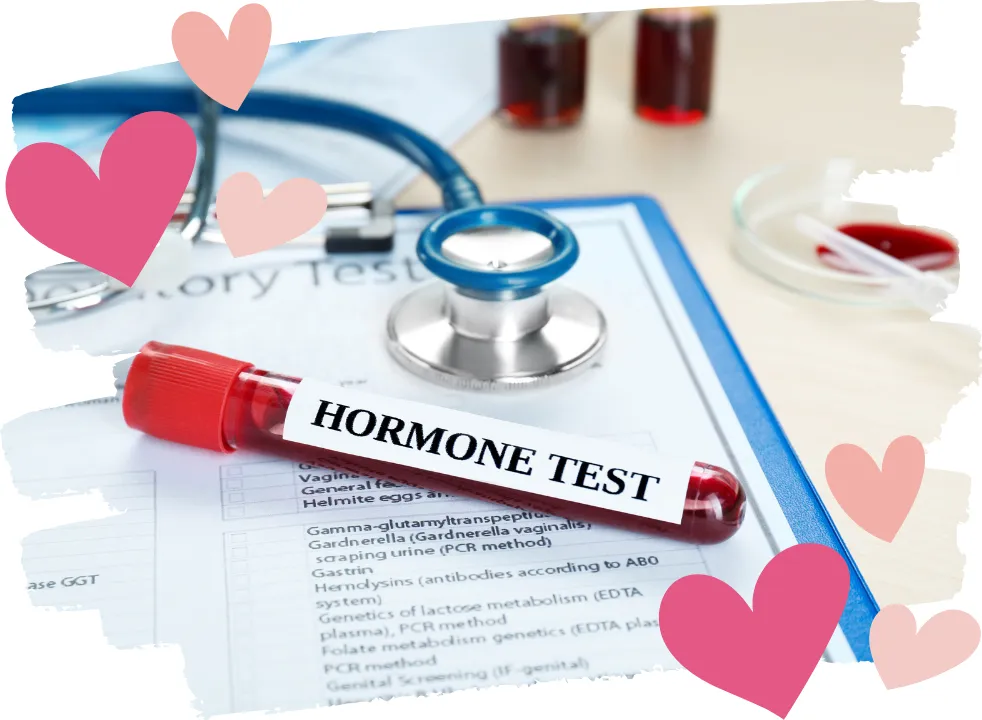The Blog
Let’s be real—perimenopause can feel like your body hit shuffle on every system at once. One day you’re fine, the next you’re crying over a dog food commercial, wide awake at 3 AM, and wondering if your jeans shrunk (again).
This blog is your go-to space for real talk, hormone help, and midlife support. I’m here to break down the science, share personal stories, and offer doable tips to help you feel more like yourself—physically, mentally, emotionally, and yes… hormonally.
Browse by topic or just dive in. Your body’s not broken—and you don’t have to figure this out alone.

Cracking the Code: How Hormone Testing Unlocks the Mysteries of Perimenopause
✨ Perimenopause Power Moves: 5 Simple Nutrition Shifts to Help You Feel Like Yourself Again! ✨
Grab your free guide today!
👉 Download Now
Cracking the Code: How Hormone Testing Unlocks the Mysteries of Perimenopause
“Many will argue that menopause is a natural process and we should just let it take its course and allow our bodies to do what they’re supposed to do. My response is that yes, the process is natural, but that doesn’t mean that it is not harmful.”
― Mary Claire Haver, The New Menopause: Navigating Your Path Through Hormonal Change with Purpose, Power, and Facts
Unlocking the Mystery: How Hormones Shape Your Perimenopause Experience
Let’s be real—perimenopause can feel like your body’s pulling a prank you didn’t sign up for. One minute you’re thriving, the next you’re crying over burnt toast and wondering why your jeans hate you.
Mood swings, insomnia, weight gain, and irregular cycles aren’t random—they’re hormonal breadcrumbs. And following them? That’s where hormone testing comes in.
For me, the turning point was a simple blood test. It showed that my estrogen was running a little wild compared to my progesterone—and suddenly, I wasn’t in the dark anymore. I had a plan.
What Even Is Going On With Estrogen?
During perimenopause, your hormones don’t just gently decline. Nope. Estrogen becomes unpredictable—surging one week, tanking the next—while progesterone tends to quietly decline in the background. This mismatch can trigger symptoms that make you feel like a stranger in your own body.
Some folks still call this "estrogen dominance," but let’s clear that up: most hormone specialists agree that term oversimplifies things. It’s not about one hormone being “too much”—it’s about how they’re dancing (or stepping on each other’s toes).
In my case, estrogen was higher relative to my progesterone at the time of testing—and the symptoms matched up.
When Estrogen Runs the Show (Temporarily):
Heavy or irregular periods
Bloating and water retention
Breast tenderness
Mood swings and irritability
Sleep disturbances
Weight settling around your middle like an unwanted houseguest
Once we connected the dots, everything started to make sense. I worked with my provider on a new approach—bioidentical progesterone, a few lifestyle shifts, and a lot more grace.
Hormone Testing: Your Body’s Blueprint
Think of hormone testing as a peek into your body's group chat. Estrogen, progesterone, cortisol, and thyroid hormones are all chatting behind the scenes—testing helps you figure out who’s being loudest and why.
Whether it’s blood, saliva, or urine testing, the right test can help you make sense of symptoms that feel all over the place.
Helpful Hormones to Check:
Estrogen (estradiol, estrone, estriol)
Progesterone – the calming hormone
FSH (Follicle-Stimulating Hormone) – rises as menopause approaches
Cortisol and DHEA – your stress and energy players
Thyroid hormones (TSH, Free T3, Free T4) – crucial for metabolism, mood, and more
What Hormone Testing Can Do:
Confirm perimenopause—especially if you’re under 45 and unsure
Highlight patterns like low progesterone or fluctuating estrogen
Guide hormone therapy decisions (no more guesswork!)
Track how your body responds to changes over time
✨ Reminder: hormones fluctuate constantly—especially during perimenopause. One test won’t give the full story, which is why tracking symptoms alongside test results is the sweet spot.
Is Hormone Testing Right for You?
Not everyone needs to test their hormones—and that’s okay. Many providers will diagnose based on symptoms alone (like hot flashes, mood changes, or skipped periods). But in some cases, testing can shine a light on what’s really going on.
You might benefit from testing if:
✔ Your symptoms don’t match what’s “typical”
✔ You’re considering hormone therapy and want a baseline
✔ You’re dealing with early menopause signs
✔ You just want clarity (because your body feels like a mystery novel)
Hormone Testing: Myth vs. Reality
🚫 Myth: Hormone testing gives you all the answers
✅ Reality: It’s helpful, but not a crystal ball. Hormones are like toddlers—moody, unpredictable, and always changing. You need more than a one-time snapshot.
How to Be Your Own Best Advocate
Perimenopause is your body’s way of handing you the mic and saying, “It’s time to tune in.” Whether or not you go the testing route, here’s how to lead with confidence:
📝 Track Your Symptoms – Log your cycle, sleep, energy, mood, and food cravings
💬 Ask Smart Questions – “Why are we testing this?” “How will it change the plan?”
🎯 Personalize Your Plan – You’re not a textbook case. Your body, your rules.
Trust the Process. Trust Yourself.
Perimenopause might feel like an unscripted reality show, but you’re the director. Hormone testing gave me clarity and a path forward—but the real shift came when I stopped second-guessing myself and started listening.
You are not broken. You’re not alone. You’re just in transition—and you’re allowed to ask questions, seek support, and say, “Hey, I want to feel better.”
You’ve got instincts, options, and (maybe) a little bloodwork to back it all up. Let’s go.
✨ Want to Dig Deeper?
If you're ready to decode your symptoms and get to the why behind the chaos, don’t miss this:
➡️ Decoding Perimenopause: The Key Tests Every Woman Needs for Hormonal Clarity
And while you’re at it, grab my free guide:
📥 Eat Your Way to Hormonal Harmony – nourishing your body never looked so good.
Hormonally Yours,
Kimberlee Erin
Just a heads-up: I’m a Certified Menopause Coaching Specialist and Holistic Nutritionist, and while I love sharing what’s worked for me and my clients, this blog is for informational purposes only. It’s not a substitute for medical advice. Always check in with your healthcare provider before starting new supplements, hormones, or treatments—especially since every woman’s perimenopause journey is different. You deserve personalized care that truly fits you.
Free Download
Perimenopause Power Moves: Transform Your Hormones and Health!
Feeling overwhelmed by perimenopause? You’re not alone. Get my free guide, and gain the confidence to manage your symptoms effectively.
Packed with practical advice and expert tips, this guide will help you balance your hormones, reduce stress, and improve your well-being.
Download your copy today and start your journey towards a smoother, more empowered transition.

